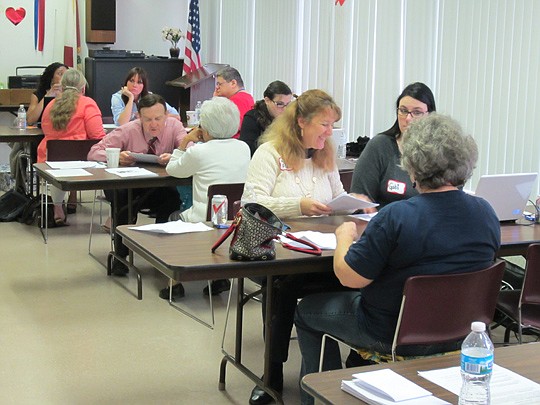
Law students provide thousands of pro bono hours in legal services organizations in Northeast Florida and, as a result, low-income persons benefit.
The students are from law schools all over the country, but the majority of students are from Florida Coastal School of Law, the University of Florida, Florida State University, the University of Miami and Stetson University College of Law.
With its campus in Jacksonville, Florida Coastal students are able to volunteer throughout the school year and are not limited to the weeks between semesters.
It would be difficult to accurately quantify the positive impact of law students on the delivery of legal services to the poor, but a description of the myriad ways they contribute will help paint the picture.
Here are some of the ways that law students strengthen and expand the work of Guardian Ad Litem, Jacksonville Area Legal Aid, the Office of Public Defender and Three Rivers Legal Services:
Law students assist with client matters. Trained students conduct intake interviews. They serve as translators and interpreters for clients whose primary language is not English.
Students assist with case management, scheduling, and document drafting. They monitor the status of cases and gather documents and information from clients. Students conduct research and write memoranda.
Law students assist with outreach events and clinics. In many cases, low-income persons can be assisted in one-day projects and group information sessions.
Law students help with Ask-A-Lawyer events. They prepare participant packets and check in attendees at family law clinics.
Law students assemble naturalization applications on Citizenship days and draft advance directives documents for senior citizens in HUD residential locations. And they conduct surveys to quantify legal needs in rural areas.
With the reduction in staff that many of our legal services providers have experienced in the past few years, the pro bono involvement of law students has helped to fill in the gaps and has helped the agencies maintain high levels of effective advocacy.
Many schools require pro bono involvement and some offer it as option for special recognition at graduation. Either way, the message is clear: Attorneys are expected to selflessly give some of their legal expertise to those who cannot afford to pay an attorney to resolve a civil matter.
The commitment of law student volunteers has lessened the impact of staff down-sizing and helps ensure that people get legal assistance in meritorious cases regardless of ability to pay.
Our next generation of attorneys “gets it” when it comes to pro bono service. Sometimes it’s simply about doing the right thing – helping a person in need and defending the integrity of our system of justice.
Attorneys interested in pro bono opportunities throughout the 4th Judicial Circuit are encouraged to contact Kathy Para, chairwoman of The JBA Pro Bono Committee, at [email protected].